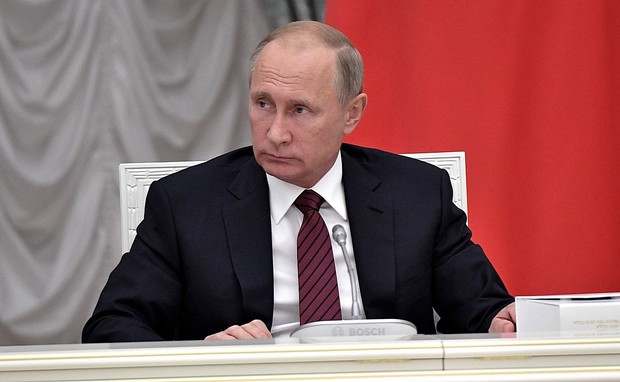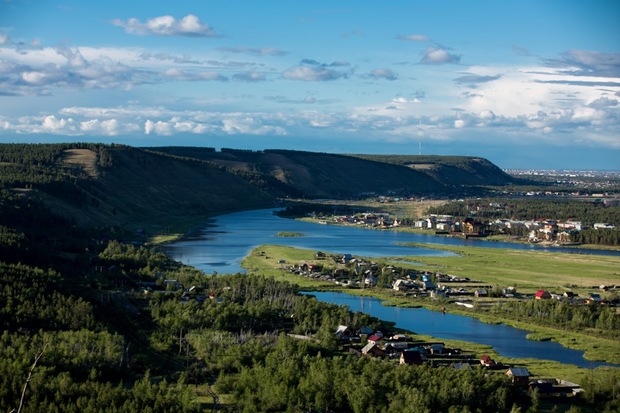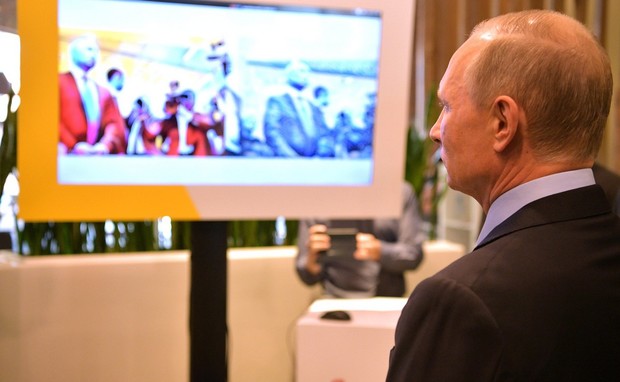Konstantin Kostin: ''Inequality of regions in Russia is more substantial and dramatic than inequality of citizens''
The political expert tells about whether Putin will run for next presidential term, consolidation of the regions and the phenomenon of Telegram
Chairman of the board of the Civil Society Development Fund Konstantin Kostin in the interview with Realnoe Vremya suggested ''with a high degree of probability'' that Vladimir Putin will run for president in 2018, spoke on the topic of power transit in the next 6 years and analyzed the options for addressing economic inequality in the regions of Russia.
The process of change of governors will go without regard for the presidential election
Do you concede that Vladimir Putin will run president in 2018?
I would like to see Vladimir Putin running for the president. Especially as for the majority of the citizens his absence among the candidates will greatly complicate a choice. This is confirmed by opinion polls, the results of which we give in the report ''Putin majority on the threshold of the big election cycle''. On the question ''For what candidate you would vote if Putin does not take part in the presidential election?'', 39% respondents were undecided, 17% said they will not go to the election, another 12% said that would ruin or take the ballot with them. It is the data from Gallup, the CVIOM have them almost the same results. Besides, a recent provocative study of Levada-center has shown that half of these 39% are ready to support a candidate recommended by Putin, even if he does not exist in nature. Anyway, the incumbent president is the unifying leader and primary political representative for the citizens of the country.

''I would like to see Vladimir Putin running for the president. Especially as for the majority of the citizens his absence among the candidates will greatly complicate a choice.'' Photo: kremlin.ru
Is there any sense in this situation to discuss the question of a successor?
It is exactly wrong to talk about specific candidates, but we certainly should discuss institutional succession. Generational shift in power is one of the most important challenges of the next six years. We are talking not only about regions, but about the power in general.
This is a very complicated story, a variety of democracies in different periods of their history faced it – it is Germany after Konrad Adenauer, the United States after Franklin Roosevelt. Among those countries which belong to the so-called ''hybrid regimes'', only China with its Confucian ethics managed to provide a fairly painless transit of the authority: using the principle of the ten-year rotation. I do not relate Russia to hybrid regimes like some researchers do, I relate it to young democracies. But for young democracies, the question of the transit of power, especially in relation to the preservation of the value backbone (in politics, economy, social and public life), which is supported by the majority of citizens, is also extremely important.
Again, it is a difficult question how to do it. There are no universal models. The only thing that I would not like is a Ukrainian scenario, where the transfer of power takes place not through democratic procedures but through a coup. All this leads to destabilization, economic decline and deterioration of life of citizens.
In other words, it is necessary to create conditions for evolutionary solution of the problem. Yes, as long as there is Putin, the Ukrainian scenario does not threaten us. But we think of 10, 20, 30-year perspective. And yes, I would like Russia always had leaders, the popularity and support of whom by the population would be at such high levels as it is being now. The world history suggests that this is unlikely, but thanks to the available resource in the form of the support for Putin, we have all the possibilities to create an evolutionary model in the next presidential term. On which – it can be predicted with a high degree of probability — the incumbent president will decide.
Consolidation of regions is the least likely option of eliminating their economic inequality
Could you comment on the information about the Kremlin's plans for enlargement of constituent entities of the Russian Federation, which allegedly will begin with the Volga Federal District and will be implemented during the next presidential term. The principle of structuring of the territories is said to be economic, not national-territorial factor.
The task of equalizing the economic level of regions is one of the key ones for the next legislature. We have social inequality among the citizens, but inequality among the subjects, in fact, is even more dramatic and substantial.
There are several basic doctrines to address this issue. One of them you have just mentioned. Besides, there is the concept of creating large agglomerations, which to become the drivers of economic growth of a certain group of subjects. There is also an approach, which is now being applied in the Far East and North Caucasus — it is the creation of priority development areas.

''We have social inequality among the citizens, but inequality among the subjects, in fact, is even more dramatic and substantial.'' Photo: bezopasnost-tv.ru
I think that the consolidation of the territories is the most difficult, non-obvious and therefore the least likely of these three approaches. It has a huge number of uncertainties and costs. First, it is a time-consuming legal and policy work — referendums, adoption of appropriate laws, establishment of after that a unified legislation and so on. But what if not two entities but three or four will unite?
In my opinion, the model being implemented in the Far East and North Caucasus is much more applicable and effective.
But anyway, the message here is technocratic, right?
Certainly. In Russia, there are about 25 subjects that feel themselves pretty confident in economic terms. There are different reasons for this — somewhere it is ''our oil is everything for us'', somewhere it is a high level of development of the industry, somewhere it is a good diversification, etc. In other regions the situation is ''more or less'' good, or very bad. If they do nothing with it, these 25 entities will become richer, and the rest will be degraded. Accordingly, it is necessary to make regional cooperation created additional opportunities for development in terms of attracting investments, development of the industrial sector and so on. It is impossible to do without the moderating role of the federal centre.
Telegram's peak is behind
Putin was quite cautious about the Internet until today, but here he came to Yandex. Is it true, along with other characteristics, that it tells of a certain increased liberality of his election agenda?
What do you mean by ''was cautious about the Internet'' if the president has an adviser on development of the Internet and IT industry? If there is a program of the ministry headed by your fellow countryman (the Ministry of communications and mass communications of the Russian Federation — editor's note)? If in Russia Internet penetration is higher than in many European countries? In my opinion, all of these priorities are defined just by the president.
Yes, on the one hand, there is a reasonable caution because the Internet is a pretty delicate instrument. Nevertheless, the president in various speeches told about the digital economy, introduction of various technologies associated with artificial intelligence. And he was not just talking — it was in the form of instructions and programs. So, it is logical that the president visited the company Yandex, the head of which, by the way, met with the head of the state a few years ago, when discussing the directions of development of the Internet and IT industry in Russia. By the way, at this meeting it was created the institute of adviser on development of the Internet and IT industry, and the president even discussed with the audience who it should be.
If we look at the development of this industry in our country, including at the number of services available on web, on Internet freedom, we will understand that the situation is better than in most old European democracies. By the way, we have a very soft, ''continental'' model of content filtering. I have studied this issue professionally, at our website there is a report on existing in the world models of content filtering on the Internet.

''If we look at the development of this industry in our country, including at the number of services available on web, on Internet freedom, we will understand that the situation is better than in most old European democracies.'' Photo: kremlin.ru
Why ''crypto channels'' of Telegram turned out to be a popular tool among political strategists, political analysts, journalists?
Because big respectable media are characterized by self-censorship, ''double solids'' and so on. Accordingly, what does not appear there appeared in Telegram channels. At some point, the level of content of certain channels was comparable to that of major media. That is why a year or two ago, we saw a rapid growth of some channels with quality content. This is the basic reason. Besides, there is a technological reason connected with convenience, speed, easy accessibility of the service.
But it seems to me that the peak of development of this ground has already passed, and just because the quality of its content, analytics and information began to degrade. This process is not fast but steady. Yes, it is due to the fact that the teams that started the most popular projects are departing from them. New people come, a large number of new channels appear, and today they are competing, rather, in the flight of fantasy that often smacks of dilettantism and conspiracy, reaching the point of absurdity rather than analytics and inside view.
By the way, look at how much the engagement rate of Telegram channels has changed — there are, for example, 70,000 subscribers of the channel, and a specific post is read by 5, 10, 20 thousand people. Of course, unless there is an alternative platform to broadcast their opinions to the world (a more advanced and convenient), this resource will not die. But the interest in it will subside.